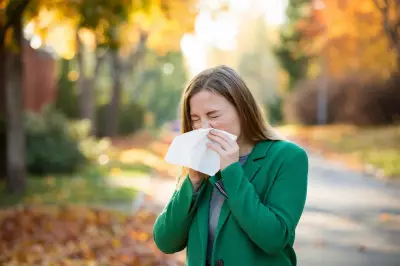
Think you know what's good for your health? You might be surprised to learn that many long-held health beliefs are actually medical myths, according to healthcare professionals.
The Gum Swallowing Myth: No Seven-Year Digestion
One of the most persistent health myths concerns swallowing chewing gum. "Contrary to popular belief, swallowing gum does not mean it will sit in your stomach for seven years," explains Dr Sarah Jarvis, a practising GP. "While it's not advisable to make a habit of it, accidentally swallowing gum won't cause any harm as it typically passes through your digestive system without issue."
Caffeine Reality Check: The Dehydration Debate
Another widespread misconception involves caffeine's dehydrating effects. "Many people believe that drinking coffee or tea doesn't count toward their fluid intake because caffeine is a diuretic," says Dr Jarvis. "While caffeine does have mild diuretic properties, the fluid in these beverages more than compensates for this effect."
Common Health Myths You Should Stop Believing
- Cold weather causes colds: Viruses cause colds, not temperature alone
- You need eight glasses of water daily: Fluid needs vary by individual and activity level
- Cracking knuckles causes arthritis: No scientific evidence supports this claim
- Reading in dim light damages eyes: It may cause temporary strain but no permanent damage
Why Medical Myths Persist
Dr Jarvis suggests these myths continue because they're often passed down through generations. "Many health myths have been around for decades, told to us by our parents and grandparents with the best intentions," she notes. "The problem arises when these myths prevent people from seeking proper medical advice or lead to unnecessary worry."
Getting Accurate Health Information
Healthcare professionals recommend consulting reliable sources like the NHS website or speaking directly with your GP rather than relying on anecdotal advice or internet rumours. "If you're ever unsure about a health claim, it's always best to check with a medical professional who can provide evidence-based advice," Dr Jarvis advises.
As medical knowledge evolves, it's important to question long-held health beliefs and seek information from qualified sources. Remember: when it comes to your health, facts should always trump fiction.





